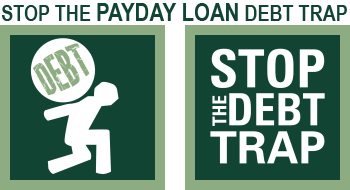“We urge Georgia’s senators to side with Georgia veterans, seniors and struggling families and not with a company that takes overdraft fees out of the pockets of these and other Georgians,” said Liz Coyle, Georgia Watch’s executive director. “Members of Congress that allow predatory financial practices and thwart the Consumer Financial Protection Bureau’s important work on behalf of the public are jeopardizing basic fraud protections that have saved Georgia residents millions of dollars. The CFPB, in just a few years, has demonstrated its value to Georgia residents and consumers around the country, returning nearly $12 billion to 29 million consumers across the nation.”
Read the full statement by Georgia Watch
A CFPB survey found that 98% of prepaid cards do not have overdraft fees. The largest prepaid card company, Green Dot, does not charge overdraft fees and supports the CFPB prepaid rule.
Read the full statement by South Carolina Appleseed
We will fight to protect Wall Street reform and the highly-successful CFPB. During election season, candidates promised to take on Wall Street banks and multinational corporations that profit at the expense of ordinary people – but today’s orders do just the opposite.
Read the full statement by WISPIRG
Today, Oklahoma Policy Institute called on U.S. Senator James Lankford to not use an obscure law to block the Consumer Financial Protection Bureau’s new prepaid card rule. The move would block basic fraud and fee disclosure protections for all prepaid cards, the vast majority of which don’t have overdraft fees.
Read the full statement by the Oklahoma Policy Institute
The Consumer Bureau’s continued progress on making financial markets fairer and safer confirms once again how important it is to have an independent and effective regulator with a consumer protection mission. The rule making prepaid cards fairer and safer is one more example of “unrigging” the system for the American people, and it should be left in place.
Read the full statement by Americans for Financial Reform
Rescinding this important protection for prepaid cards will leave unbanked consumers with limited options for storing their money safely. The rule for prepaid cards went through extensive development and marked significant progress in consumer protection that brought this product closer to credit card protection standards. Often, people, including those with fixed or limited incomes, purchase prepaid cards because they don’t want to risk getting harmed by overdraft charges.
Read the full statment by the Center for Responsible Lending
“It is outrageous that Congress may block basic fraud protections on prepaid cards so that NetSpend can keep gouging struggling families with overdraft fees that have no place on prepaid cards,” said Lauren Saunders, associate director of the National Consumer Law Center (NCLC). “Members of Congress that support Wall Street and predatory lenders over working families may also use this vote to continue their attacks on the CFPB, our consumer watchdog, which has returned nearly $12 billion to 29 million consumers across the nation.”
Read the full statement by the National Consumer Law Center
The prepaid card rule was developed over a period of more than four years and informed by an in-depth study. That is what good government looks like: policy decisions informed by research that help everyday people. Good government does not look like invalidating consumer protections that have industry support so that a company can continue to profit off of consumers as the only major prepaid card provider with overdraft fees.
Read the full statement by the Consumer Federation of America
Consumers are on the brink of having the first legal protections on prepaid cards. But the Consumer Financial Protection Bureau’s (CFPB) Prepaid card rule is under attack by GOP members of Congress doing the bidding for one big prepaid card issuer – Netspend.
Read the full statement by Consumer Action
In October 2016, the Consumer Financial Protection Bureau (CFPB) outlined increased transparency measures for prepaid spending cards. The CFPB’s rule, nicknamed “Know Before You Owe,” stresses the importance of promoting clear and accessible customer information.
